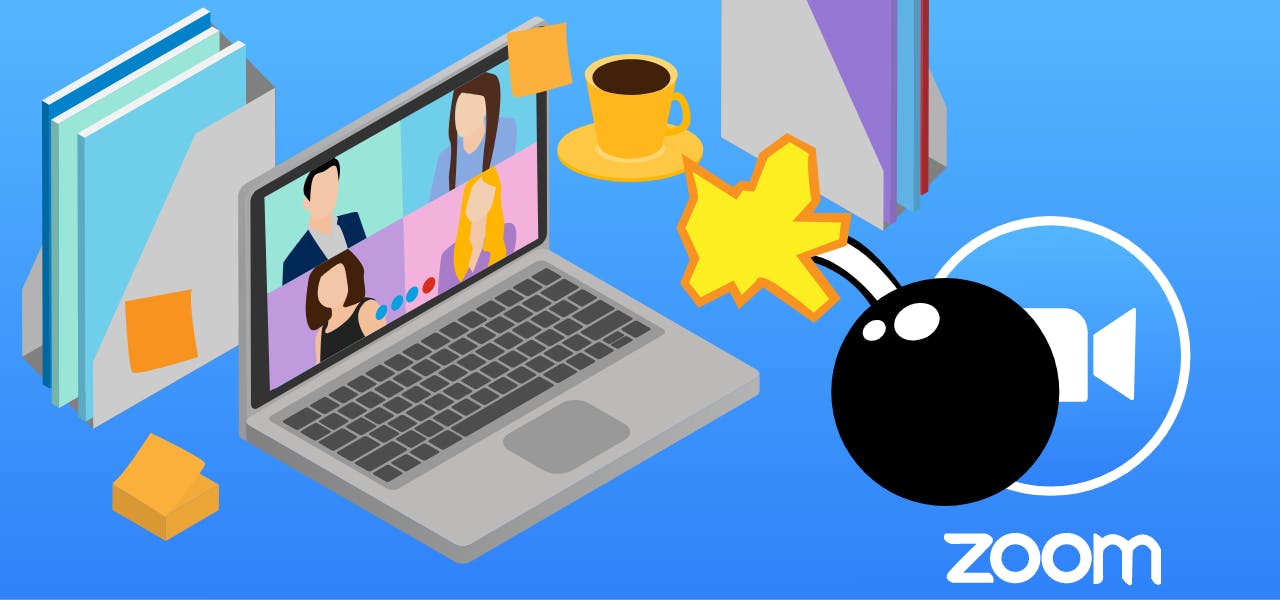So much of what we do to communicate with co-workers now has been moved to the online realm. In turn, professionals everywhere have had to transform spaces in their homes and re-skill with platforms such as Zoom or Skype. While the disruption has been challenging, these platforms have also been major saviors in so many ways. Remote workers are enjoying the ease of things and new added benefits such as not having to embark on stressful commutes to work everyday, improved air quality in cities, and being able to take more breaks and stay fresh throughout the working day.
For those conducting interviews with candidates or just meeting one-on-on with a client, there’s a pretty low risk of being zoom-bombed, but a new problem has emerged for those who are hosting large Zoom sessions, classrooms, or videoconference lectures. Academics and teachers especially need to be aware of the new threat to their online classroom setting which is Zoom-bombing—or the act of joining a Zoom conference anonymously only to harass or otherwise disturb the lesson or lecture that is going on.
Zoom-bombing is intentional and meant to completely disrupt the nature of lectures, and moreover learning. These pranksters sometimes have hidden political messages they wish to deliver or are seeking to rebel against something or someone.
Tips for Preventing Zoom-bombing
Because the switch to videoconferencing has created this new opportunity for zoombombers, this also means there needs to be new protocols and security measures adopted so zoom-bombing stays the exception and does not become the norm. There is nothing more disappointing especially from an academics perspective than having a well-planned lecture or course be disrupted because someone had a spiteful intent.
That’s why teachers, academics, and even teaching assistants can take part in promoting awareness that zoom-bombing is happening, and include in their syllabus a section about what zoom-bombing is and how it affects classroom time and learning that students are, after all, paying for.
The host of every videoconference, regardless of the platform, has the power to quickly end the live stream. Professors especially need to be aware of how to operate and disconnect sessions promptly should something happen in the middle of lectures. Working with an IT department and having a pilot or co-pilot standing by is strongly recommended. This means for some academic institutions freeing up budgets and getting the necessary personnel in the room when its time for online class.
This phenomenon is not limited to Zoom, though. One development that has come out of this unfortunate series of events is that Google is now advancing their Google Meet platform to protect educators against unwanted intrusions.
Google classes an anonymous user as someone who isn't signed in with a Google account. Anyone classed as a G Suite for education user will have their privacy increased in the coming days.
As the G suite update site explains, "anonymous users can no longer join meetings organized by anyone with a G Suite for Education or G Suite Enterprise for Education license. This prevents participants from sharing a link publicly to encourage anonymous users to request access."
Where Zoom-bombing has already happened and its consequences
The issue has already happened in many different spheres, including counseling groups and online weekly worships that have replaced regular visits to temples and churches. It’s also happened in academia. One doctoral candidate said in April that his dissertation defense was disrupted by a zoombomber mid-session.
The consequences of zoom-bombing go beyond the lectures and dissertations they interrupt. They also represent systemic issues within learning and presenting research outcomes to any type of audience. When we are interrupted or lose our train of thought in real-time, it can be easy to step out of the room and come back refreshed. But in the case of technology it’s not that easy. When the entire session needs to be rescheduled or ended abruptly, it shows a weakness that can be exploited, and thus have chronic effects to an entire education system.
This is also coupled by students themselves who plan zoombombing interruptions for the purpose of ending lectures earlier so they can have more free time.
In the coming weeks leading up to a new academic school year, it’s important for academics, policymakers, and technology leaders to form partnerships and collaborate to appropriately handle the issue of zoombombing and the major distraction it might cause to our new society.
